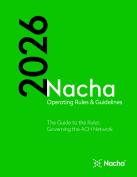Invoking the Exemption from the Funds Availability Requirement, and the RDFI’s Associated Notification Requirement

One of the new Rules that went into effect on Oct. 1, 2024, expands an RDFI’s voluntary exemption from the funds availability requirement of the Nacha Operating Rules. The Rule also requires an RDFI to take reasonable steps to notify an ODFI if the RDFI exercises this exemption. Some RDFIs have questioned the value of the notification. They have also pointed out that depending on when an RDFI receives a credit Entry, it may not have much time to carry out its monitoring of received credit Entries before having to make funds available, such as for a Same Day ACH credit. As a result, they reason that the RDFI may elect to delay posting for a large number of suspicious transactions, including suspicious micro-entries. While an RDFI is not required to conduct its monitoring pre-posting, these points deserve discussion.
First, when an RDFI chooses to invoke its exemption, the resulting delay in posting may prompt questions from a Receiver who expected a payment, or an Originator who expected funds to arrive when intended. The value of the notification requirement is that it proactively empowers the ODFI of an Entry to respond effectively to the Originator of the Entry if the Originator inquires about its status. Nacha has enabled a notification tool within its Risk Management Portal that it believes provides a reasonable way to provide prompt notification, though an RDFI may elect to notify an ODFI by other methods.
Second, after deciding to delay posting an Entry, the RDFI will review the Entry more closely and decide whether to post it late, but still within the Reg CC requirement, or return it to the ODFI. If it posts the Entry, the Receiver who expected the transaction will know that it posted. If the RDFI returns the Entry, the Originator will become aware of the return. In either case, the parties to the transaction will know the final disposition of the Entry.
Third, an RDFI is required to establish and implement risk-based processes and procedures that are reasonably intended to identify credit Entries that are suspected of being unauthorized or authorized under False Pretenses. The risk-based requirement means that an RDFI should determine its risk tolerance for identifying suspicious transactions, and for acting on transactions that exceed the tolerance. Determining risk tolerance is an optimization exercise whose results will vary from institution to institution. However, it seems unlikely that an RDFI would identify as suspicious a large number of transactions whose value falls far below the RDFI’s risk tolerance.
Finally, the new Rule requires an RDFI invoking an exemption from the funds availability requirement to take reasonable steps to notify the ODFI promptly. Circumstances may arise that cause an RDFI’s risk-based monitoring procedures to identify a large number of suspicious transactions in a short period of time. If the RDFI invokes its exemption from availability requirements for an overwhelming number of transactions, it would be unreasonable to expect the RDFI to make prompt notifications to each ODFI about each of the Entries whose posting has been delayed. Reasonability might suggest prioritization of notifications based on dollar value, a message tailored to the affected ODFIs, or other steps that demonstrate an RDFI’s adherence to the spirit of the Rule.
By establishing a risk-based approach to monitoring, an RDFI will be able to identify credit Entries that may deserve additional scrutiny during the time afforded by the exemption from the funds availability requirement. Notifying an ODFI of a delayed posting will provide essential information to explain to an Originator that a transaction did not post when expected.







